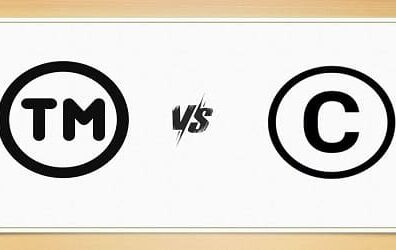Section 43B(h) Amendment-A Comprehensive Guide

Introduction
At the core of tax regulation in India lies the Income Tax Act of 1961, meticulously crafted to oversee the collection and assessment of taxes. Within this framework, a significant paradigm shift emerges with a notable amendment, particularly directed at Section 43B(h), altering the landscape of allowable statutory deductions for outstanding dues.
Section 43B of the Act outlines specific deductions permitted upon actual payments. Looking ahead, the Finance Bill of 2023 introduced a transformative addition – Clause (h) to Section 43B of the Income Tax Act of 1961. This inclusion marks a pivotal moment, reshaping the dynamics of statutory deductions and reflecting the evolving nature of tax legislation.
What is Section 43B(h)?
The Finance Act of 2023 introduced a pivotal amendment, Section 43B(h), which outlines that any outstanding amount owed to Micro, Small, and Medium Enterprises (MSMEs) for supplied goods or rendered services can be deducted in the same fiscal year if settled within the deadline set by the Micro, Small, and Medium Enterprises Development (MSMED) Act of 2006.
The newly inserted clause in Section 43B reads as follows:
“Section 43B: Notwithstanding anything contained in any other provision of this Act, a deduction otherwise allowable under this Act in respect of-
(h): any sum payable by the assessee to a MICRO or SMALL enterprise beyond the time limit specified in 15 of the Micro, Small and Medium Enterprises Development Act, 2006,”
This transformative amendment is strategically designed to combat the issue of working capital scarcity within the MSME industry. Its primary objective is to incentivize and facilitate timely payments to micro and small businesses. This amendment officially comes into effect from April 1, 2024. This forward-looking modification aims to foster financial stability and operational growth within the MSME sector, aligning with broader economic goals.
Deadline Specified in Section 15 of the Micro, Small, and Medium Enterprises Act
As per Section 15 of the MSME Development Act, 2006 defines that
“Where any supplier supplies any goods or renders any services to any buyer, the buyer shall make payment therefor on or before the date agreed upon between him and the supplier in writing or, where there is no agreement on this behalf, before the appointed day*;
Provided that in no case the period agreed upon between the supplier and the buyer in writing shall not exceed forty-five days from the day of acceptance or the day of deemed acceptance”
It is understood from the aforementioned discussion, as agreed between the buyer and supplier the payment shall get made by the buyer, but it could not be more than 45 days from the acceptance date or the day of the deemed acceptance i.e from the acceptance day of the goods or service.
‘Appointed day’ means the day following immediately after the expiry of the period of fifteen days from the day of acceptance or the day of deemed acceptance of any goods or any services by a buyer from a supplier.”
Consequently, business enterprises are mandated to settle payments owed to Micro, Small, and Medium Enterprises (MSMEs) within a specified timeframe of 45 days, in accordance with the guidelines outlined in Section 15 of the Micro, Small, and Medium Enterprises Development (MSMED) Act of 2006. The adherence to this timeframe is contingent upon the existence of a written agreement between the parties involved.
In scenarios where there is no formal written agreement, the obligation stands to make the payment within a more accelerated timeframe of 15 days. Conversely, if a written agreement is in place, the payment must align with the mutually agreed-upon timeline. Importantly, this agreed-upon timeline should not surpass 45 days, ensuring that business enterprises fulfil their financial commitments to MSMEs in a timely manner, fostering a more equitable and sustainable business environment.
Results of Failure to Comply with Section 43B(h)
Failure by the buyer to fulfil payment obligations to the supplier of goods or services will result in significant consequences under the new amendment introduced by the Finance Bill of 2023, particularly under Clause (h) of Section 43B. This also extends to incurring compensatory interest liability, as stipulated by Section 16 of the MSME Development Act, 2006, and is deemed an ineligible business expense. The repercussions include:
(i) Compensatory Interest: If a buyer is unable to make payments within the specified timeframe outlined in Section 15 or as agreed upon in any contract or regulation, the buyer is liable to pay compound interest with monthly rests. This interest is calculated at three times the rate of the bank specified by the Reserve Bank of India (RBI) repo rate as of the appointed day or the immediately following date agreed upon.
(ii) Prohibition of Interest Payments as Compensation to MSMEs: Any interest payable or paid by a buyer under the provisions of Section 23 of the MSME Development Act, 2006, will not be considered for the purpose of income calculation under the Income Tax Act of 1961. Consequently, such interest payments will not be permitted as a deduction.
(iii) Expenditure Disallowance: For any expenses incurred, including sums liable to be paid by the taxpayer or payments for purchases from a supplier registered as a micro or small enterprise, authorization will be denied if the payment is not made within the specified timeframe outlined in Section 15 of the MSME Development Act, 2006. This emphasizes the strict adherence to payment timelines for expenses related to micro and small enterprises, ensuring compliance with regulatory guidelines.
Which Entities can be termed as Micro and Small Enterprises?
Entities falling within the Micro and Small Enterprise categories are defined based on specific financial parameters:
Micro Enterprise:
Investments: Less than Rs. 1 crore
Turnover: Less than Rs. 5 crore
Small Enterprise:
Investments: Less than Rs. 10 crore
Turnover: Less than Rs. 50 crore
These thresholds provide clear benchmarks for the classification of businesses into either Micro or Small Enterprises, facilitating a structured approach to the categorization of enterprises within the economic landscape.
Section 43B(h) Applicability on Traders
This clause, Section 43B(h), becomes relevant when an enterprise is involved in the procurement of goods or services from another enterprise registered under the Micro, Small, and Medium Enterprises Development (MSMED) Act of 2006. Notably, it is important to highlight that registration of the buyer under the MSMED Act of 2006 is not obligatory.
In accordance with the Office Memorandum No. 5/2(2)/2021-E/P and G/Policy dated July 2, 2021, wholesale and retail traders are eligible for Udyam registration solely for the purpose of Priority Sector Lending. Therefore, it is crucial to understand that Section 43B(h) does not apply to outstanding dues owed to traders, as per the MSMED Act’s specific definition of an enterprise. This distinction underscores the scope and applicability of Section 43B(h) within the context of different types of enterprises under the MSMED Act.
Impact of Section 43B(h) on Business World
The introduction of Section 43B(h) will bring positive changes to the business word. Some of the advantages are listed below:
Advantages for MSMEs:
- Efficient Payment Cycle: MSME Section 43B(h) encourages timely settlement of dues by larger companies within the specified timeframe of 15 days (without a written agreement) and 45 days (with an agreement). This ensures a steady cash flow for MSMEs, crucial for their sustainability and expansion.
- Enhanced Bargaining Power: This provision empowers MSMEs with stronger negotiating positions when discussing payment terms with larger enterprises. The assurance of consequences for delayed payments enables them to confidently advocate for deadlines aligned with the stipulated timeframe.
- Reduced Disputes: Timely payments minimize potential disputes and legal conflicts arising from outstanding dues. This not only saves time and resources but fosters a more cooperative environment for both MSMEs and larger businesses.
Benefits for Larger Enterprises:
- Strategic Tax Planning: Adhering to the specified timelines allows larger enterprises to claim deductions for payments made to MSMEs within the same fiscal year, leading to a reduction in tax liabilities.
- Enhanced Compliance and Transparency: Income-Tax Section 43B(h) promotes transparent financial practices and adherence to regulations. This contributes to a responsible business environment, ensuring compliance with fiscal standards.
- Strengthening the MSME Ecosystem: Ensuring prompt payments to MSMEs contributes to the development of a robust MSME ecosystem. This, in turn, benefits larger entities through a dynamic supply chain and streamlined access to diverse resources, fostering a mutually advantageous business environment.
Conclusion
In essence, the amendment to Section 43B(h) marks a significant leap forward in fostering financial stability, compliance, and collaboration within the Indian business ecosystem. As we look towards the implementation of these changes on April 1, 2024, the stage is set for a more equitable and sustainable future in the intricate tapestry of tax and business regulations.
Follow Us
Keep Yourself Updated By Following Us




